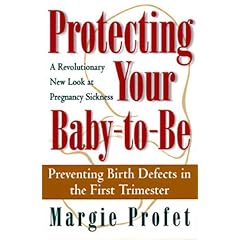 Profet’s friends peg her vanishing to sometime in 2005. Reporters and journalists didn’t notice because by then she had become a dying star, so reclusive and withdrawn even those who knew her best say they no longer knew her at all.
Profet’s friends peg her vanishing to sometime in 2005. Reporters and journalists didn’t notice because by then she had become a dying star, so reclusive and withdrawn even those who knew her best say they no longer knew her at all.
“Shocked and saddened to hear that Margie had disappeared and might even be dead,” Donald Brown, (right) who taught anthropology at UC Santa Barbara, got to know Profet when she stayed with Brown’s friend and colleague, UC Santa Barbara evolutionary anthropologist Donald Symons.
Famous for his theory of “human universals,” which posits that certain behavioral traits are common to all human beings regardless their culture or ethnicity, Brown remembers Profet as “attractive, bright, and a little eccentric, but unfailingly pleasant and upbeat.”
He was also a fan of her work. “It seemed an insightful, well-thought-out, and very useful application of evolution,” he told me.
Profet learned to think at Harvard, where she graduated with a political philosophy degree in 1980. Returning to study more than two decades later, she looked up Harvey Mansfield, (left) another old frie nd and mentor.
nd and mentor.
Supervising what he calls her “her fine senior thesis on Nietzsche,” Mansfield—Harvard’s William R. Kenan, Jr. Professor of Government and one of the world’s leading political theorists—worked closely with Profet during her undergraduate years.
But when she came back to study math, something troubling came with her. The bright, clear-eyed, inquisitive young woman Mansfield knew had become lonely, agitated, and adrift.
“I tried to help, for several months, but she became exasperated,” Mansfield says. The last time he saw her was on a Cambridge street, where “she finally told me to get lost.”
Deirdre Barrett has similar memories. A leading dream researcher, Barrett interviewed Profet by phone after reading stories about how her theories came to her in dreams.
Like the German chemist August Kekule, who said he discovered the ring-shaped chemical structure of benzene in a dream about a red-and-yellow snake swallowing its tail, Profet had recounted how her cat interrupted a similarly colorful dream about black triangles embedded in red. The triangles were pathogens, she interpreted, in menstrual blood washing them away.
Starting in 1994, “Margie and I spoke off and on,” Barrett told me. “At one point—I think it was 1998—I was writing a book. I called to check some quotes and facts, and that was the first time I noticed something odd. She didn’t sound well and she kept quibbling about little things. Her speech was very fast and hyper—much more hyper than usual. She seemed aggravated and distressed.”
“It was wonderful,” Don Symons told the New York Times about Profet’s theory of menstruation as adaptation. “Margie fit together many disparate elements into one coherent explanatory system, exactly what a scientific theory should be.”
In The Quarterly Review of Biology, she not only proclaimed that menstrual bleeding was Mother Nature’s way of cleansing the reproductive canals; she also warned women away from oral contraceptives that suppress it, and when patients complained of unusually heavy periods, advised doctors to test, not only for cancer but infections most of all. With each new pronouncement, Profet was chipping away at the status quo, and irking establishment peers.
“There are just so many logical arguments against what she says,” objected University of Michigan anthropologist Beverly Strassmann. “To the extent you can generate predictions from her theories, none were supported.”
The criticism intensified when Profet extended her morning sickness and food aversion theories, warning pregnant women to avoid certain vegetables. Cabbage, cauliflower and Brussels sprouts contain trace levels of the carcinogen allyl isothiocyanate, for instance.
Sounding the alarm in two popular books, 1995's Protecting Your Baby-To-Be: Preventing Birth Defects in the First Trimester and a 1997 sequel, Pregnancy Sickness:  Using Your Body's Natural Defenses to Protect Your Baby-To-Be, Profet incited the establishment once again.
Using Your Body's Natural Defenses to Protect Your Baby-To-Be, Profet incited the establishment once again.
“We're very concerned about Profet's books, because eating vegetables is a very good way to get folic acid, which is essential to a baby's development,” March of Dimes spokesperson Andrea Zeitzer told reporters in a response typical of the time.
Taking aim at Profet in an aptly-titled American Journal of Obstetrics & Gynecology paper Profet, profits, and proof: Do nausea and vomiting of early pregnancy protect women from "harmful" vegetables? Penn State nutrition professor Terryl Hartman, Ph.D. and Judith Brown, Ph.D., professor emeritus of nutrition at the University of Minnesota, warned against further media infatuation. “It is suggested that claims made in the popular press about food and health relationships should be evaluated by the media as fiction, unless supported by scientific research.”
But the criticism didn’t seem to affect her much, and with nothing to prove one way or the other, Profet chucked the best-seller lists for what she told Scientific American was “a new adventure in life,” a return to student-hood, to restore “the math part of my brain that withered and died.”
The University of Washington—where I attended classes with her—welcomed Profet as a department of astronomy “scholar in residence,” though she came to study math. She stayed in Seattle a few years before returning to her Harvard alma mater.
1 2 3 4 5
No comments:
Post a Comment